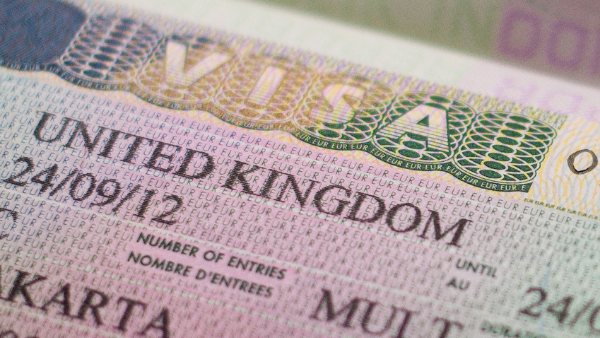Author
As the clock struck 11pm on 31 December 2020, the Brexit transition period officially came to an end. Along with leaving the single market and customs union, this also resulted in a fundamental change to the UK immigration system, as EEA citizens ceased to benefit from freedom of movement.
In one of our previous articles, we looked at the Tier 2 visa route as a possible way to sponsor international employees to live and work in the UK. However, it may be that a work visa is not the most appropriate option in all circumstances. We have had a number of enquiries from clients around the most suitable visa option for individuals who reside and work for businesses located outside the UK but, on occasion, attend the UK for meetings, to provide training or to give presentations. In the current Covid climate, such activities are likely to have diminished or completely ceased. However, with the vaccine now being rolled out (painfully slowly) we anticipate that travel and social interaction will be back on the agenda for most businesses by the end of the year. In light of this, we explore a visa route for individuals to come to the UK, on an occasional and infrequent basis, for business-related activities.
What is a Standard Visitor (SV) visa?
The SV visa has replaced a number of previous visitor visas including the Business Visitor visa and the Prospective Entrepreneur visa. It enables short-term visitors to come to the UK for a range of specific activities, including: certain business engagements, recreation, training, limited study and private medical treatment.
Under the SV visa route, an individual can apply to stay in the UK for up to 6 months. However, where there is a requirement to visit the UK multiple times, over a longer period, there is the option to apply for a visa that lasts 2, 5 or 10 years. On each occasion that the individual enters the UK, they can stay for a maximum continuous period of 6 months.
For the purposes of this article, we will focus on utilising the SV visa route for business-related activity only.
Who needs to apply for a SV visa?
Strictly speaking, individuals referred to as “non-visa nationals” are not required to apply for a SV visa where the intended duration of stay is less than 6 months and they do not intend to work during their stay, or partake in any prohibited activities (see further details, below). Everyone outside of this category, referred to as “visa nationals” (see list here) are required to apply for a visa, regardless of the length or purpose of their stay.
Whilst non-visa nationals are not technically required to apply for a SV visa, it is advisable that they do so in certain circumstances. For example, if you have an employee who is required to attend the UK on occasion (say 5-10 times per year) to participate in meetings, or deliver training, then they may want to consider applying for a SV visa to avoid delays or questioning at the UK Border.
Eligibility requirements for a long-term SV visa
In order to apply under this visa route, the individual must meet and be able to evidence the following requirements:
- they have a frequent and sustained need to come to the UK, which includes being able to demonstrate established business links;
- their personal circumstances are unlikely to change significantly during the validity of the visa;
- they can support themselves in the UK without assistance from public funds;
- they must be able to demonstrate they are a “genuine visitor”, which means the individual:
- will leave the UK at the end of their visit;
- will not live in the UK for extended periods, through frequent or successive visits, or make the UK their main home; and
- will not undertake any of the prohibited activities (as set out below); and
- Their previous travel and immigration history as evidenced in a current valid passport supports the request (note – they do not need to have previously held a UK visit visa before being issued with a long-term visit visa).
One of the most important elements of the eligibility criteria is the individual’s ability to demonstrate that they are a genuine visitor, and that their intention for entering the UK is limited to a visit, without making it their primary home. Where the individual’s circumstances require them to attend the UK for longer period of time for work, then this visa route is not suitable and you or they will need to consider alternative work visas, such a Skilled Worker or Intra-Company Transfer visa. For more information about these visa types, please refer to our previous article here.
Permitted Activities
The Immigration Rules are very prescriptive in terms of what activities are considered ‘permitted’ under the SV visa route.
In terms of general business activities, the following are specifically permitted:
- attending meetings, conferences, seminars and interviews;
- giving one-off or a short series of talks and speeches, provided that these are not organised as commercial events and will not make a profit for the organiser;
- negotiating and signing off deals and contracts;
- attending trade fairs for promotional work only (the employee is not permitted to undertake direct selling);
- gathering information for their overseas employment; and
- attending briefings on the requirements of a UK based customer, providing the work is completed outside of the UK.
On 31 December 2020, the Home Office published a new statement of changes to the Immigration Rules which, although not exactly earth-shattering, included a few adjustments to the rules on permitted activities. Subsequently, the following is now permitted:
- conducting market research or analysis in the UK for overseas employment;
- independent research for overseas employment; and
- translators and/or interpreters can translate and/or interpret in the UK, as an employee of an overseas company.
As part of the visa application process, it is necessary for the individual to be able to demonstrate that any business activities they intend to undertake in the UK are incidental to their overseas employment. The activities should be pre-arranged prior to the employee entering the UK, which will need to be evidenced as part of the visa application. Crucially, the planned activities should not amount to work, i.e. the individual must not receive pay or remuneration from any UK based outfit. However, payment is permitted in certain, very limited circumstances, such as to cover reasonable expenses or travel.
Where the reason for the employee’s visit is to attend a UK subsidiary or related company to their overseas employer, the following activities are permitted:
- advising and consulting;
- trouble-shooting;
- facilitating training;
- sharing skills and knowledge on a specific internal project with UK employees of the same corporate group, provided no work is carried out directly with clients; and
- carrying out regulatory or financial audits at a UK branch within the same corporate group – this applies to internal audits only.
The above should be linked to short term and specific projects. For longer term activities, or where the employee is required to work directly with clients, the Intra-Company Transfer visa will be a more appropriate route.
Prohibited activities
If an individual is entering the UK under the SV visa route for the purpose of undertaking business activities (as set out above), they must be very careful to ensure they do not undertake any actions that may be construed as prohibited work, which includes:
- being employed in the UK;
- carrying out work for an organisation or business in the UK;
- establishing or running a business as a self-employed person;
- participating in a work placement or internship;
- direct selling to members of the UK public; and
- providing goods and services.
If there is any evidence that the individual is undertaking prohibited activities in the UK, then they will have their SV visa revoked, may be subject to a UK travel ban and, in certain circumstances, may receive a custodial sentence for failing to observe the conditions of their visa. It is therefore very important that individuals in the UK on a SV visa are aware of the limitations of this visa route, in respect of the right to reside and work in the UK.
Application process
Rather surprisingly, the application for a SV visa is a notoriously complex and paper-heavy process. We say surprisingly as, more often than not, the evidential requirement to demonstrate an individual is a ‘genuine’ visitor is more burdensome than the evidence required for a longer-term work visa.
When submitting an application, the Home Office will want to see vast evidence to demonstrate that the employee is a genuine visitor, i.e. they do not intend to remain or reside in the UK for an extended period of time. Such evidence could include:
- airplane tickets (to show a return flight);
- their employment contract (to demonstrate ties to their home country);
- a letter from their employer, based outside the UK (to confirm their continued employment);
- mortgage or lease agreement (as above, to demonstrate ties to their home country); and
- evidence of a family life in their home country.
Where the primary purpose of the UK visit is business-related, the Home Office will require evidence to show the nature of the planned activity and why it should not be considered under the list of prohibited activities, which could include:
- a letter from the UK company, with details of the purpose of the individual’s visit;
- the employee’s bank statements/payslips (to evidence they can finance the trip, without being paid for the work they will undertake);
- where the visit relates to a specific project, any documents relating to this; or
- where the visit relates to training, or a speech/talk, any documents relating to this.
Neither of the above lists are exhaustive. There is no specific list of the evidence required in either the Immigration Rules or the guidance documents, and so the more evidence you include in the application, the better! Unfortunately, the lack of specificity can result in a higher rate of refusals for this visa route (in 2019, 340,797 visitor applications were refused). Once an individual has been refused, the chance of getting a subsequent refusal on a new application increases. Therefore, if you think this route may be applicable for your business (or for you), please do get in touch and our expert team will guide you through the application process.
Print article

